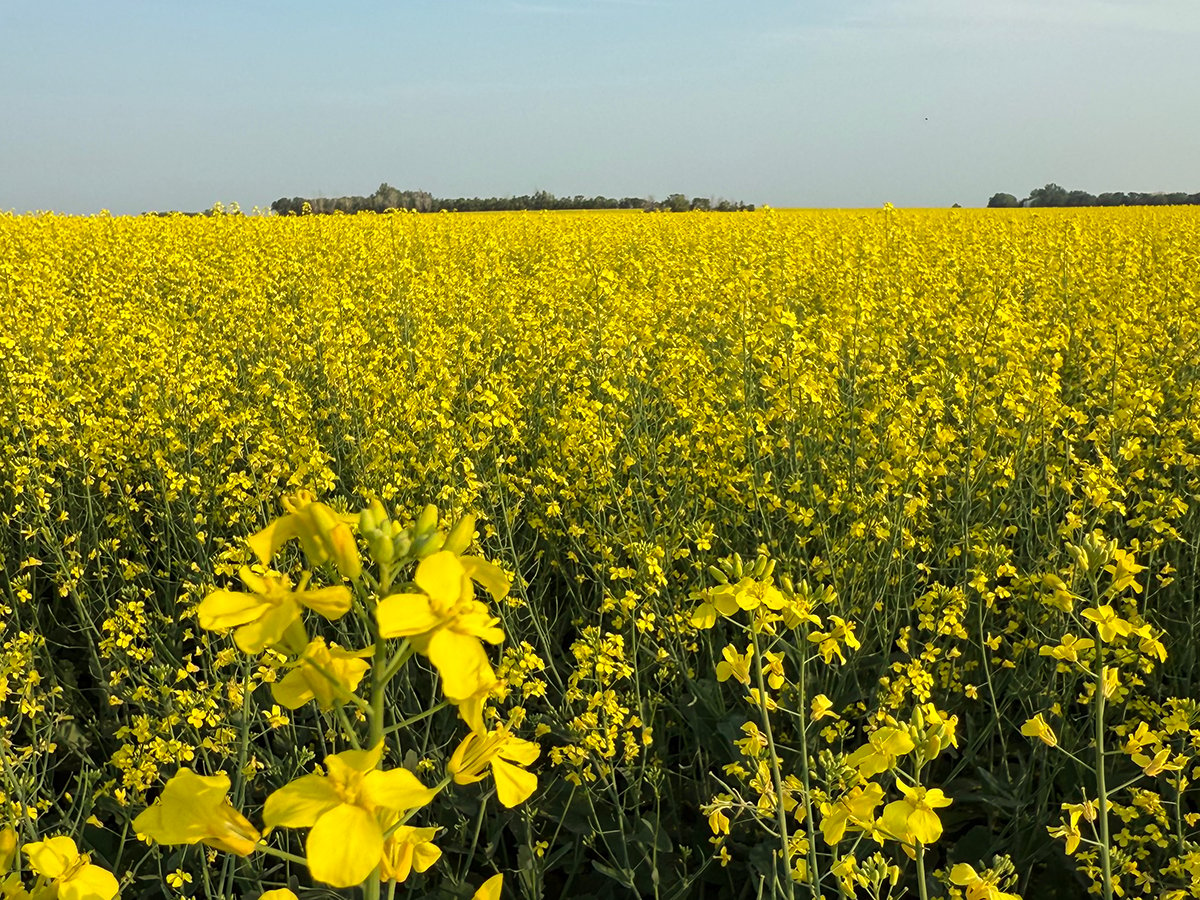Ed Rempel vividly recalls the day he switched to genetically modified canola.
It was shortly after he applied a mixture of three chemicals to his traditional canola crop at a cost of $45 an acre and then watched the rains wash it away.
“I said right then and there, ‘I will never grow a non-GM canola again.’ “
For the past seven years, Rempel has planted only Roundup Ready and Liberty Link canola on his farm near Starbuck, Man. The reduction in pesticide use has been phenomenal, he said.
Read Also

Canola support gets mixed response
A series of canola industry support measures announced by the federal government are being met with mixed reviews.
“You have to spray the crop but generally speaking you only have to spray the damn thing once,” he said.
Rempel is one of 8.25 million farmers in 18 countries around the world growing GM crops. A new study suggests that since they were introduced 10 years ago, GM crops have delivered measurable benefits to those millions of farmers and to society at large.
The report, issued by PG Economics Ltd., stated that because of GM crops, global pesticide use has dropped by millions of kilograms, fuel use has declined by millions of litres and farmer incomes have soared by billions of dollars.
“While greatly enhancing the way farmers in 18 countries produce food, feed and fibre, biotech crops have reduced the environmental footprint associated with agricultural practices,” said PG Economics director Graham Brookes, whose clients include leading biotechnology firms.
Since 1996, the first year of large-scale production of GM crops, worldwide pesticide use has fallen by 171 million kg, which represents a six percent decline in spraying activity, equivalent to eliminating 1,514 rail cars of active ingredient, the report said.
Less spraying has in turn led to a fuel savings of 1.8 billion litres, causing a 4.9 million kg decline in carbon dioxide emissions.
The use of no-tillage and reduced-till systems, spurred by the superior weed control offered by GM crops, has also helped reduce carbon dioxide emissions.
Between the fuel savings and the carbon sequestration, GM crops removed the equivalent of 4.7 million cars off the road in 2004, stated the report.
Due to savings on input costs and enhanced productivity associated with GM crops, farmers around the world are $27 billion better off, concluded Brookes.
Rempel said there is no denying GM canola has saved on pesticide and fuel expenses and delivered better yields on his farm, but he is convinced he was financially better off growing non-GM varieties 10 years ago.
“Has it translated into prosperity for us? Phone your elevator and see what you can get for a bushel of canola. It ain’t that great.”
Biotechnology has made it easier for growers to produce canola, which has led to overproduction and depressed prices. Grain handlers and seed science companies are faring well but the producer is not, said Rempel.
“It’s tougher than ever to make money, tougher than ever. Hello, where’s the great promise?”
And it’s only going to get worse as consolidation leads to fewer companies controlling biotech seed, said Rempel.
“They’re dictating their seed costs to me, they’re dictating their chemical costs to me with only a passing interest in my ability to pay.”
Ralph Martin, director of the Organic Agriculture Centre of Canada, also has difficulty with many of the findings contained in the 97 page report, which was published in AgBioForum, a peer-reviewed journal.
He wondered if rising seed costs were factored into the $27 billion calculation and whether the authors accounted for the increased herbicide costs associated with treating Roundup resistant weeds.
According to PG Economics, the savings did include the cost of the seed technology, but there was no accounting for extra herbicide costs associated with resistance issues, a problem the authors admit could marginally reduce net environmental and economic gains.
Martin noted how arguments put forth by agrochemical and biotech companies are evolving.
“In the late 1970s and 1980s, when I was talking about organics, people would tell me pesticides are not a problem and now the same people are trying to convince me biotech crops are the answer mainly because they reduce pesticide use.”
He said growers can realize a complete pesticide savings by converting to organic.
“I’m aware of several (research) papers that show that organic farmers tend to have higher profits than conventional farmers.”
Martin also took issue with savings associated with no-till systems mentioned in the study.
“You don’t need a biotech crop to have no-till cultivation,” he said.















